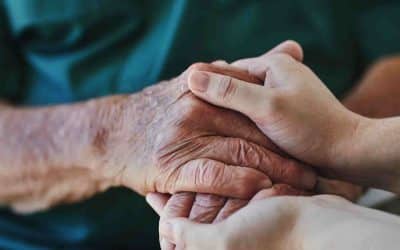On October 3, the opponents to euthanasia are called upon to demonstrate before the new regional prefectures. Alliance VITA’s general delegate explains the reasons.
What is the status of the legislative process concerning the end of life?
Tugdual Derville: The so-called Claeys-Leonetti law comes up for a second reading at the National Assembly starting October 5, 2015, finally without having been modified by the Senate. In June when presented to the Senators, the strange result was that after in-depth analysis by the commission, then in séances, the text was considerably altered. All the ambiguities had been clarified, notably those which we had denounced as “masked euthanasia”.
But during the formal vote by the Senate, the government obtained the rejection of the new text. The bill thus retains the same weaknesses of the bill voted for in March 2015. Even the shocking adverb “unnecessarily” that Marisol Touraine had promised to eliminate from the expression “unnecessarily prolong life, remained…
You called for a regional demonstration on October 3, 2015. Why?
It is imperative that our voices should be heard, as the Association for the Right to Die in Dignity (ADMD) is pulling out all stops. We will therefore join the 13 protest movements under the single banner of “Relieve Suffering without Killing”, in the city prefectures of our new regions on Saturday October 3, at 11 a.m.
The danger of this text should be understood by all. For palliative care, we should also obtain that the government should pass from words to actions. For three years, they have continually recycled the same promise, month after month, to put into place a development plan for palliative care. It has become an elusive holy grail, and alibi n°1 for the law regarding the end of life, whereas it contains nothing concrete in this domain.
What do you think of those who support this law, all the while saying they are opposed to euthanasia?
That they are playing with fire. It’s easy to prove the text’s ambiguity. In addition, among the people who believe that they must support it, many spontaneously confide that it is useless as well as dangerous. I think that this is even the major opinion of deputy Jean Leonetti for whom the law is named after. With high-profile media coverage – whereas it doesn’t concern many – the ADMD poses as a “scarecrow”, leading some to support an inherently bad option in order to avoid the worst. But this is a dangerous gamble. With the phrase “profound and continuous sedation until death” combined with stopping hydration, we are tilting towards the slippery descent towards euthanasia.
Why ?
To deliberately provoke death within a few days is the definition of euthanasia, even if the word is not mentioned. Is it fair to circumvent the definition of the word? This potential drift will be confused with legitimate practices of sedation. The public is already troubled. We have witnessed this by the calls received at our SOS End of Life listening site. The promoters of lethal injection may well say that their straightforward and expeditious project is less hypocritical…
They already take up the subject of what they improperly call « dying from hunger and thirst” (it is more appropriate to say malnutrition and dehydration). We know how the media can play up “interminable agony”.
What is your position in relation to the palliative care movement?
A number of caretakers – doctors, nurses, psychologists, volunteers – support us in protest against this law; and they are well-positioned to measure the threat of these provisions in their practice…
On an institutional level, the palliative care movement seems to be at a crossroads. If the majority of its members remain hostile towards euthanasia, some are ambiguous…Especially for assisted suicide. The weak option of sedation risks leading to masked euthanasia. Distilling euthanasia into palliative care was the real objective for the promoters of euthanasia.
And this is what happened in Belgium where both practices are now mixed-up together, creating a worrisome and confusing situation. But we shouldn’t limit the debate exclusively to caregivers and those dispensing palliative care. Death concerns all of us. All medical disciplines are concerned. In Great Britain, where Parliament just voted against assisted suicide, the witness of handicapped persons has had a huge impact. With Philippe Pozzo di Borgo, who sponsors ‘Relieve Suffering without Killing’, we say “Don’t touch the Untouchables!” Before the “end of life” law, as in our demonstrations, the most fragile are on the front line.
Interviewed by Frédéric Aimard



